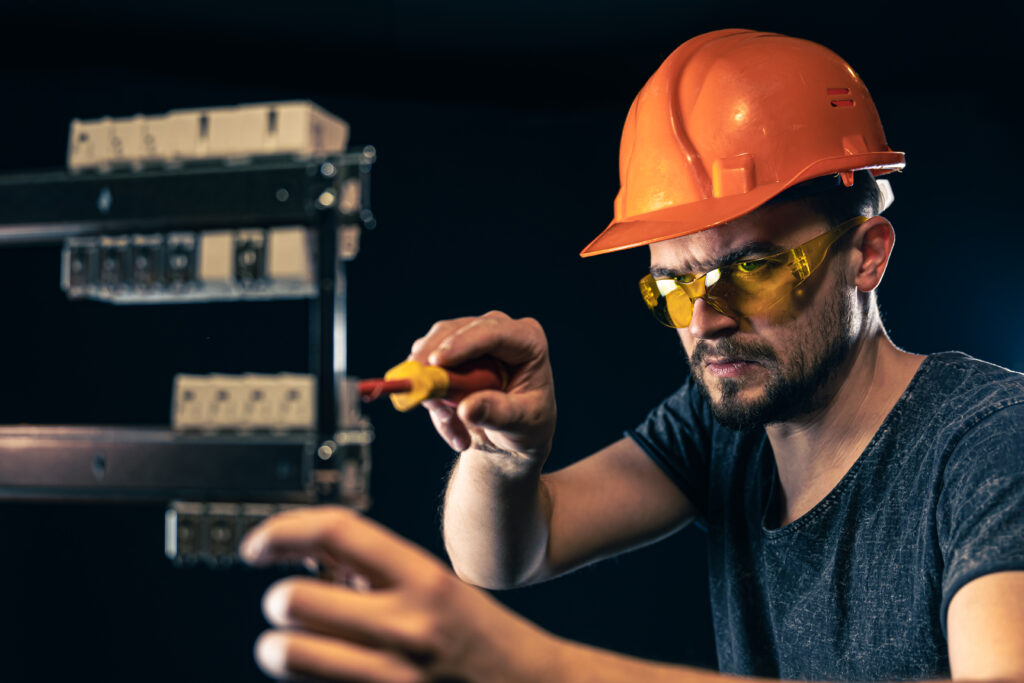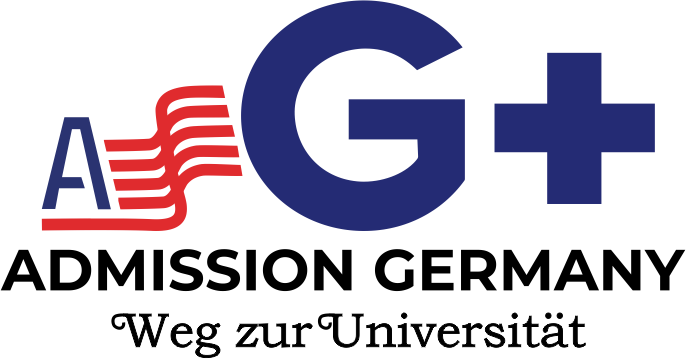What Subjects Are Taught in the Electrician Training Program?
Electricians play an essential role in building, maintaining, and repairing electrical systems that power modern society. From homes and factories to hospitals and data centers, their expertise ensures that electricity flows safely and efficiently. But becoming a qualified electrician requires more than just learning how to handle wires—it demands a solid understanding of electrical theory, technology, and safety standards.
In countries like Germany, the Electrician Ausbildung (training program) is a highly structured vocational education system that combines classroom learning with practical on-the-job training. During this period, trainees gain both theoretical knowledge and hands-on experience, preparing them for a successful career as professional electricians.
This blog explores in detail what subjects are taught in the electrician training program, how the curriculum is structured, and what skills students acquire throughout their learning journey.

1. Overview of the Subjects in Electrician Training Program in Germany
The electrician training program is typically a dual vocational training system, lasting about 3 to 3.5 years. Trainees spend part of their time in vocational schools (Berufsschule) and the other part working with certified electrical companies or industries.
This dual structure ensures that learners gain both academic knowledge and real-world experience. The training focuses on several areas such as:
- Electrical engineering fundamentals
- Installation techniques
- Energy systems
- Automation technology
- Communication systems
- Maintenance and repair
Each year of the program builds upon the previous one, gradually moving from basic electrical concepts to more advanced and specialized topics.
2. Theoretical Subjects in the Subjects in Electrician Training Program in Germany
The theoretical component is designed to give students a strong understanding of electrical science and its applications. Below are the major theoretical subjects taught:
2.1 Electrical Engineering Basics
This is the foundation of the entire program. Students learn about:
- Basic electrical quantities (voltage, current, resistance, power)
- Ohm’s Law and Kirchhoff’s Laws
- Direct current (DC) and alternating current (AC) circuits
- Series and parallel connections
- Electrical energy calculations
These topics help trainees understand how electricity behaves in different situations, forming the groundwork for future learning.
2.2 Mathematics and Physics for Electricians
Electricians rely heavily on math and physics to solve electrical problems and design circuits. Topics include:
- Algebra and trigonometry for circuit analysis
- Electrical measurements and conversions
- Magnetic fields and electromagnetic induction
- Mechanics related to electric motors and generators
Understanding the physical principles behind electrical systems allows trainees to apply logical and analytical reasoning in their work.
2.3 Electrical Materials and Tools
This subject covers the study of materials used in electrical installations, such as:
- Conductors and insulators
- Types of cables and wires
- Switches, fuses, relays, and circuit breakers
- Measuring instruments (multimeters, voltmeters, ammeters)
- Safety tools and protective equipment
Students learn how to identify, select, and properly use these materials for various projects.
2.4 Electrical Safety and Regulations
Safety is one of the most important aspects of electrical work. Trainees study:
- National and international electrical codes
- Workplace safety regulations (VDE, DIN, IEC standards)
- Protective measures against electric shock
- Safe operation of electrical equipment
- Fire prevention and first aid in electrical accidents
By mastering safety procedures, electricians ensure both personal safety and public protection.
2.5 Circuit Design and Analysis
This subject teaches students how to plan and analyze electrical circuits. They learn:
- Designing lighting and power circuits
- Control and automation circuit design
- Reading and interpreting electrical schematics
- Testing and troubleshooting techniques
Practical design exercises allow trainees to simulate real-world installations and practice fault detection.
2.6 Energy Subjects in Electrician Training Program in Germany
Electricians must understand how electrical energy is produced and distributed. Topics include:
- Power generation (thermal, hydro, nuclear, and renewable)
- Transmission and distribution networks
- Transformers and substations
- Load management and power factor correction
Students gain insight into how large-scale electrical infrastructure works and how energy reaches homes and industries.
2.7 Digital and Analog Electronics
Modern electrical systems are integrated with electronic components. Trainees study:
- Semiconductor devices (diodes, transistors)
- Logic gates and digital circuits
- Microcontrollers and sensors
- Amplifiers and signal processing
This knowledge helps electricians work with smart home systems, automation, and modern electrical devices.
2.8 Renewable Energy and Sustainability
As the world shifts toward green energy, the electrician’s role has expanded. Students learn:
- Solar photovoltaic (PV) systems
- Wind energy systems
- Energy storage technologies
- Energy efficiency and conservation techniques
This subject prepares electricians for future-ready careers in renewable energy systems installation and maintenance.

3. Practical Training Subjects
While theory provides knowledge, practical training gives electricians the skills to apply what they learn. The hands-on modules include real-world tasks under expert supervision.
3.1 Electrical Installation Work
This is one of the most extensive practical areas of training. Students practice:
- Installing electrical wiring systems
- Mounting sockets, switches, and lighting fixtures
- Connecting electrical panels and distribution boxes
- Working with conduits and cable trays
- Testing continuity and insulation resistance
Practical sessions simulate residential, commercial, and industrial settings.
3.2 Maintenance and Repair
Trainees learn to diagnose and fix electrical problems. This involves:
- Using diagnostic tools for fault detection
- Repairing damaged cables and equipment
- Replacing defective circuit components
- Maintaining electrical systems for reliability
These skills are crucial for becoming an efficient service technician.
3.3 Automation and Control Systems
Automation is central to modern industries. Students gain hands-on experience with:
- Programmable Logic Controllers (PLCs)
- Sensors, relays, and actuators
- Industrial automation systems
- Process control and monitoring
Practical automation projects teach students how to design and maintain automated systems used in manufacturing.
3.4 Motor and Transformer Wiring
This practical subject focuses on working with electrical machines:
- Assembling and testing electric motors
- Winding transformers and alternators
- Starting and protection of motors
- Maintenance of motor control circuits
Electricians often handle industrial equipment, so understanding motor control is essential.
3.5 Installation of Renewable Energy Systems
Trainees gain experience installing solar panels, inverters, and batteries. They learn to:
- Mount PV modules safely
- Connect inverter systems
- Measure solar performance and efficiency
- Integrate renewable systems with the grid
This is a high-demand skill area due to the global transition to clean energy.
3.6 Testing and Quality Control
Every electrical system must be tested for safety and performance. Trainees practice:
- Insulation and continuity testing
- Voltage and current measurement
- Functional testing of control panels
- Documentation of test results
Quality assurance ensures that installations meet regulatory and performance standards.
4. Communication and Professional Skills
Being a successful electrician is not just about technical knowledge. The training program also includes soft skill development.
4.1 Technical Communication
Electricians must be able to communicate effectively with clients, engineers, and team members. They learn:
- Reading technical documentation
- Writing service reports
- Understanding symbols and diagrams
- Using digital tools for project management
Clear communication ensures smooth coordination in large-scale projects.
4.2 Customer Service and Ethics
Since electricians often interact directly with clients, professionalism is emphasized. This includes:
- Respectful client communication
- Quoting and explaining services
- Ethical handling of electrical work
- Confidentiality and responsibility
These lessons build the foundation of trust and reliability in the profession.
4.3 Teamwork and Project Management
In large projects, electricians work in teams. Trainees learn about:
- Role distribution and teamwork
- Scheduling and workflow organization
- Supervising apprentices or assistants
- Managing time and materials efficiently
These skills are valuable for those who plan to become supervisors or start their own businesses.
5. Modern Technological Subjects
The electrician training program also adapts to modern advancements. Emerging technologies are part of the updated curriculum.
5.1 Smart Home and Building Automation
Trainees learn to install and program smart systems, including:
- Home automation controls
- Smart lighting and HVAC systems
- IoT-based monitoring devices
- Integration with mobile applications
This prepares electricians for modern residential and commercial building requirements.
5.2 Electric Vehicle (EV) Charging Systems
With the rise of electric vehicles, electricians are trained to:
- Install and maintain EV charging stations
- Understand load management for charging
- Work with smart grid systems
- Apply safety standards for high-voltage systems
This specialization opens new job opportunities in the green mobility sector.
5.3 Information and Communication Technology (ICT)
ICT is becoming integral to electrical systems. Trainees study:
- Structured cabling and network setup
- Data transmission and signal processing
- Fiber optics and LAN installations
- Integration of data and electrical systems
This combination of IT and electrical knowledge creates versatile professionals.
6. Exams and Assessments
Throughout the training, students undergo regular assessments that include:
- Written exams on theory subjects
- Practical tests on electrical installations
- Project-based assignments
- Oral interviews and technical discussions
At the end of the program, there is a final examination (Gesellenprüfung) that evaluates the trainee’s overall competence. Successful candidates receive certification as professional electricians.
7. Career Preparation and Development
The electrician training program not only provides technical education but also prepares trainees for a sustainable career. The program covers:
- Job readiness training
- Workplace communication
- Entrepreneurial skills
- Advanced specializations (e.g., industrial electrician, energy technician)
Graduates can work in industries, construction, renewable energy sectors, or even start their own businesses.
8. Key Takeaways from the Electrician Training Program
To summarize, the main subjects taught in the electrician training program include:
- Electrical engineering fundamentals
- Electrical safety and regulations
- Circuit design and energy systems
- Installation and maintenance techniques
- Automation and renewable energy
- Communication and teamwork skills
- Modern technologies like smart homes and EV systems
This comprehensive training ensures that every graduate is skilled, certified, and job-ready for the evolving electrical industry.
Conclusion
The electrician training program offers a perfect blend of theoretical education and practical experience. It is designed to produce competent professionals capable of meeting the demands of modern electrical systems.
By mastering subjects ranging from basic electrical principles to advanced automation and renewable technologies, trainees become part of a highly respected and essential profession. Whether you aim to work in residential, industrial, or renewable sectors, completing this program opens doors to diverse and rewarding career paths.
Electricians not only power homes and industries—they power progress.

